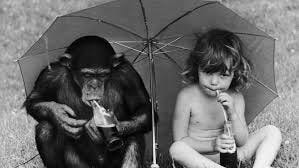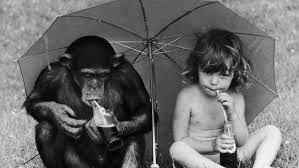I am Good at Lying
This is what I learned when I was in third grade.
Australian Aborigines say that the big stories—the stories worth telling and retelling, the ones in which you may find the meaning of your life—are forever stalking the right teller, sniffing and tracking like predators hunting their prey in the bush.
—Robert Moss, Dreamgates
I was very unhappy in third grade—at least that is what I remember.
I know this is not uncommon and that third grade is often considered the first adolescence. Its when we realize we are mortal and that the adults around us don’t actually know what they are doing. It can be a real shock. Third grade is hard. And my third grade experience led me to something unique and very important.
My third-grade teacher Mrs. Chapman had powdered purple-gray hair, her tight lips, and wire glasses. I shudder thinking about her because she terrified me. If she sounds familiar it might be because I immortalized her in I Am Marvel. I can also remember the feeling in the classroom: the loneliness and shame and longing for a good friend—or at least someone I could confide in. Someone who understood me.
Having taught third grade, I know disliking third grade is common.
People often remember their third grade teachers as strict, and that the other kids were mean, that the classes were difficult, and the sense of isolation wove through it all.
That said, it was in the middle of this existential crisis that I discovered the power of storytelling. I discovered that with one story, I could turn everything around—at least, once again, that is my memory. I learned how to lie. And I was good at it.
I remember a moment in third grade when other kids were talking about the various activities they liked to do, and I could see that they were connecting with each other around those common interests. I recall feeling left out, and I suddenly heard myself say:
“I have a pet chimpanzee.”
All eyes were on me. All eyes were wide. I had everyone’s full attention, and I remember it felt fantastic. If it had stopped there, then it would have remained a blissful moment. But I learned that lies required more lies.
“Where did you get a chimpanzee? Where do you keep him? Is that legal? Can I come see it? Will you bring it to school?
”
I began to field the questions as best I could, and I remember that the answers came quickly and without much thinking. In fact I don’t think I was thinking at all. I was telling a story. Yes, I was also telling a lie—but I was telling a story. And it was clear that I was good at it.
I kept people away from my house but I continued lying. I told people I could lift cars (like in I am Marvel, again), that I was abducted by aliens (although I kind of think I might have been), and that my grandfather was a nazi hunter (he was a medic in WW2).
I don’t remember being doubted.
But I do remember painting myself in a corner. I did not tell the “big stories” referenced in the quote above, I told little stories for my own benefit or amusement. I helped no one with these stories. Lucky for me, I learned that my family was going to move once again and I could start over. When we moved to Clarence, NY, I continued to lie, continued to tell stories, but not ones that required proof. My stories became more mythic and metaphoric, and I noticed they became more potent.
Confession: my first thoughts these days are often untrue.
Its just what happens. When someone asks me a question, I generally want to tell them something incredible and completely made up. Sometimes a go for it, but I use my body language and tone to let them know that I am full of it. Most of the time, though, I smile to myself and then tell the truth. The factual truth.
If I’m going to tell a story, I tell the mythic truth with the clear intention that it is to help someone. It is to model something, point to something or provoke something eternal and universal. But not for me anymore. At least I am trying.






“When someone asks me a question, I generally want to tell them something incredible and completely made up.” I should do this more because it would be fun. I tell stories when I have planned on doing it. It might be a spontaneous story or a planned one but I’ve usually planned the time of the telling and sent a clear container. I don’t jus tell made up stories at spontaneous times based on questions my kids ask.
This is a big, important conversation in the realm of storytelling. I'm working on a draft about this same subject. Working title is, "Why You Need to Be a Skilled Liar to Tell a True Story."